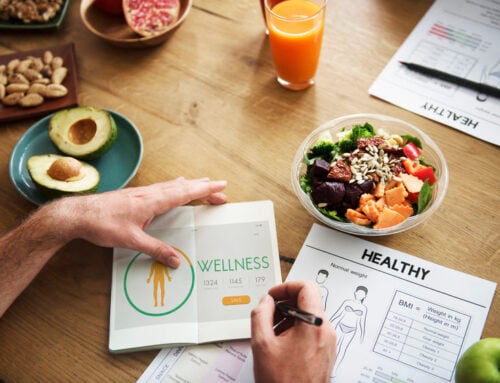Why Does Nutrition Matter?
Eating healthy is more than just about fitting into those goal jeans. Healthful eating improves heart health, prevents chronic disease, boosts mood, and increases longevity. Consider these fast facts and tips for eating a healthier diet.

Focus on what you can add
One of the quickest ways to quit a diet is focusing on what’s not allowed. Instead, try to make changes that emphasize adding healthy foods. For example, aim to eat one fruit and one vegetable at every meal, including breakfast. People may try incorporating spinach into smoothies, veggies in omelets, berries in yogurt, or a banana with peanut butter on toast.
Increase specific nutrients
One of the best ways to improve nutrition is learning to read food labels properly. Look at the percent daily values (DV). In general, try to choose foods that contain at least 20% or more of the DV for helpful nutrients such as vitamin D, calcium, potassium, and fiber. Keep in mind that DVs are based on a 2,000-calorie diet, so may not be exactly accurate for a person who eats more or less than 2,000 calories a day.
Know what to limit
One of the most important factors in improving a daily diet is cutting back on sodium, trans fats, and sugar. Pre-packaged foods are major culprits of these harmful ingredients. For optimal heart health, keep sodium under 2,300mg daily and keep saturated fats under 20g per day. Steer clear of hidden sugars, such as dextrose, fructose, corn syrup, and sucrose.
Opt for healthy fats
While processed foods are often chock-full of unhealthy fats, good fats can improve health. Olive oil, avocados, and nuts are all associated with increased heart health. The trick is to consume proper serving sizes. High-fat foods, even good fats, are very calorie-dense, which means these foods can easily get a person off track if the person doesn’t pay attention to appropriate serving sizes.
Choose your shortcuts wisely
Picking up frozen, canned, or pre-chopped fruits and veggies can be a valuable shortcut. Just make sure that these foods have no added salt. In frozen fruits and veggies, watch for added sauces that can be high in sodium. When possible, choose whole fruits and veggies. Usually, there will be pre-chopped fruits and veggies in the fresh section.
Speak with a dietitian
People who have trouble sticking to a healthy diet may benefit from speaking with a dietitian. These experts can customize meal plans and help people make healthier choices. For more information or individualized recommendations, speak with a healthcare provider.




